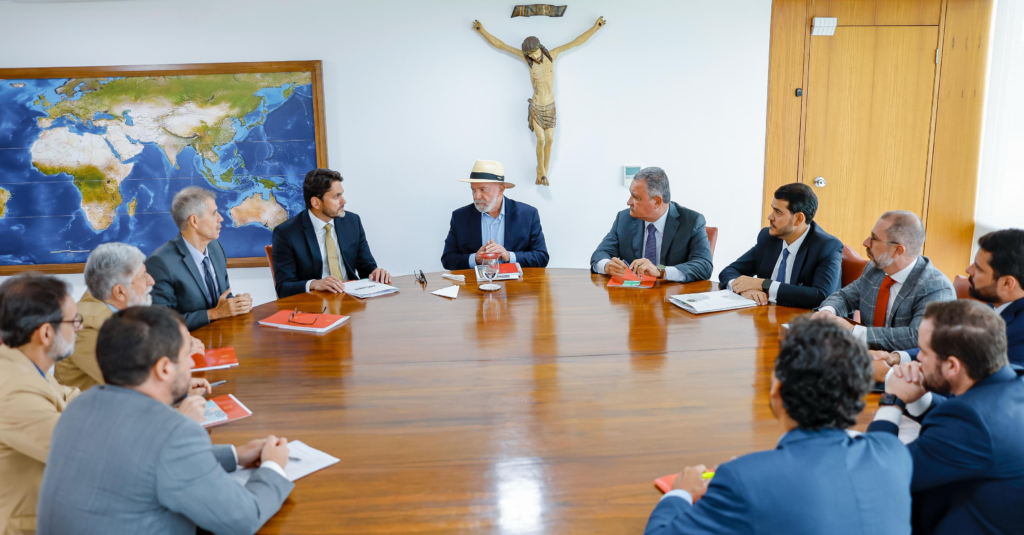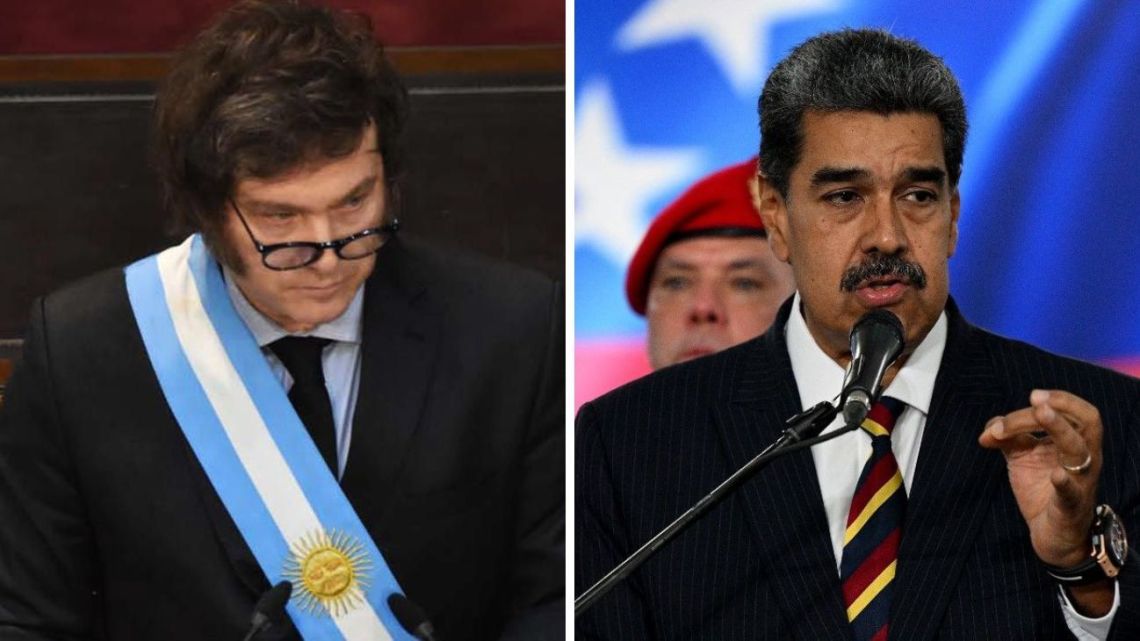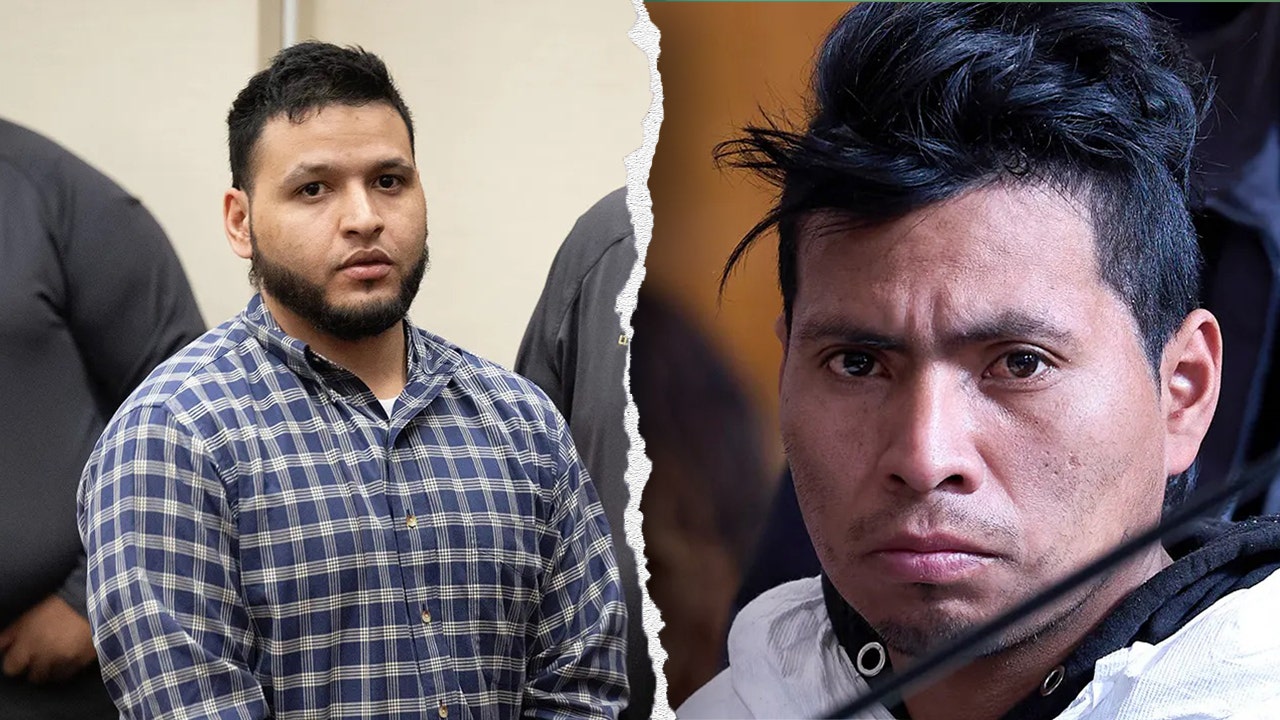Mexico City, Mexico — Nicolás Maduro was sworn in for a third term as president of Venezuela on Friday, following an election in July that was deemed fraudulent by his political opposition and international electoral observers.
Across Latin America, leaders, from the left and right of the political spectrum, were divided between diplomacy and disavowal. His staunch allies, including Cuban President Miguel Díaz-Canal and Nicaragua’s Daniel Ortega, attended his inauguration ceremony, while other Latin American leaders did not attend or sent emissaries in their place.
After July’s disputed election result, Maduro’s government fiercely cracked down on dissent, throwing opposition members and ordinary protesters in jail. Opposition leader Maria Corina Machado went into hiding for most of the past six months, and the opposition’s presidential candidate, Edmundo Gonzalez Urrutia, was forced to flee to Spain. The crackdown drew outrage from many political leaders around Latin America.
Here’s a look at how different LatAm leaders reacted to Maduro’s inauguration on January 10.
Colombia
For Colombia, Venezuela’s prominent neighbor sharing 1,380 miles of border, Maduro’s reelection and the violent repression of civilians opposing his regime was faced with the repudiation of Colombian President Gustavo Petro, who came out and criticized the electoral results that secured Maduro’s victory.
“The recent elections in Venezuela were not free. There are no free elections under blockades,” wrote Petro through his X account.
“We cannot recognize elections that were not free, and we hope that they can be held soon without blockades or internal intimidation … “Staying in power and giving away oil seems to be the proposal of various factions of U.S. politics. In my personal case, I will never accept such a proposal,” said Petro.
However, Petro asserted that his government won’t break diplomatic relations with Maduro’s Venezuela.
 Petro, Lula, Sheinbaum and Boric through Gustavo Petro’s X profile page
Petro, Lula, Sheinbaum and Boric through Gustavo Petro’s X profile pageChile
In Chile, the self-proclaimed leftist leader, Gabriel Boric, was as adamant against Maduro’s inauguration as Petro, also chiding the Venezuelan electoral process and slamming Maduro for his undemocratic and repressive actions against political dissidents.
“I am a person of the left, and from the political left, I say: the government of Nicolás Maduro is a dictatorship, and we must make all international efforts to restore the rule of law and democracy. All efforts to ensure that the people of Venezuela have the right to decide their own destiny are the position of the government of Chile, which we have defended from the beginning and will continue to uphold,” he said during a press conference ahead of Maduro’s inauguration ceremony.
Mexico
In accordance with its non-interventionist foreign policy, Mexican leader Claudia Sheinbaum took a more diplomatic stance, refraining from upholding Maduro’s disputed victory, nor that of Gonzalez Urrutia, who many LatAm leaders have called the rightful winner of July’s election.
“We defend our foreign policy based on the sovereignty of the Venezuelan people. They are the ones who must decide; there should be no intervention in any form, but it must be the people of Venezuela who decide,” she said during her morning briefing on Friday.
Yet, Sheinbaum condemned any form of political violence used against civilians.
“Anyway, we have never been in favor of the criminalization of a political position. We do not agree with it, but of course, we respect, evidently, the sovereignty of the peoples,” she added.
 President Sheinbaum via Claudia Sheinbaum’s official webpage
President Sheinbaum via Claudia Sheinbaum’s official webpageUruguay
The government of the outgoing President of Uruguay, Luis Lacalle Pou, has always been a vocal opponent of Maduro. In the face of Maduro’s reelection, the Uruguayan government issued a statement labeling Venezuela as an authoritarian regime.
“Today is a somber day for Latin America and all the peoples of the international community who defend and believe in democratic values,” opened the press release issued by the Uruguayan Foreign Ministry.
The newly elected President Yamandú Orsi, labeled as a leftist and progressive, has also condemned Maduro in spite of being congratulated by Maduro himself for his recent election.
“It is not a democracy, it is an authoritarian regime and, if you will, a dictatorship. I do not relativize it, it is different from what we were accustomed to. One should not speak lightly because what is happening in the world is very complex,” said then candidate Orsi in an interview in October 2024.
Brazil
Previously criticized for his softer stance toward, and at some times even support of Maduro, the leader of Latin America’s largest economy, Luiz Inacio Lula da Silva, has changed his attitude regarding the Venezuelan government since the 2024 elections.
 Lula via his X profile page
Lula via his X profile pageHolding the temporary presidency of BRICS, the international bloc composed of Brazil, Russia, India, China, and South Africa, Lula was the decisive vote that prevented Venezuela from joining the group, which put Lula at odds with other members such as Russia, who criticized Lula’s decision to shun Venezuela from BRICS.
Next to Mexico and Colombia, Brazil was one of the few Latin American leaders who pushed for a diplomatic end to the political crisis derived from the general elections by urging Maduro to produce the voting records that confirmed his victory.
The demand was met with apathy from the Maduro regime.
Peru
The Peruvian government of Dina Boluarte, who was amongst the first to reject Venezuela’s electoral results in 2024, reasserted its stance opposing Maduro. Through a press release, Peru’s leadership slammed Maduro’s reelection.
 Dina Boluarte via X
Dina Boluarte via X “The government of Peru regrets and rejects that Nicolás Maduro has fraudulently assumed the presidency of Venezuela. The Peruvian government does not recognize him as president,” read the statement.
Boluarte herself came to power after former President Pedro Castillo was arrested for attempting to dissolve Congress in December 2022, in what his political opposition calls an attempted coup.
Cuba
Amongst Maduro’s iron-clad supporters, the President of Cuba, Miguel Díaz Canel, was amongst the sole Latin American leaders to attend Maduro’s inauguration ceremony and to openly uphold the lawfulness of his reelection. The Caribbean island is also a subject of U.S. diplomatic and economic pressures and has been an undeniable ally of Maduro’s.
“We are already in Venezuela, homeland of the brave people of Simón Bolívar, Hugo Chávez, and Nicolás Maduro. We stand with this country’s legitimate president at the time of his oath, which is the birthplace of independence in our America. Here is Cuba, brother Nicolás.”

 By Latin America Reports | Created at 2025-01-12 00:11:36 | Updated at 2025-01-12 04:18:57
8 hours ago
By Latin America Reports | Created at 2025-01-12 00:11:36 | Updated at 2025-01-12 04:18:57
8 hours ago








